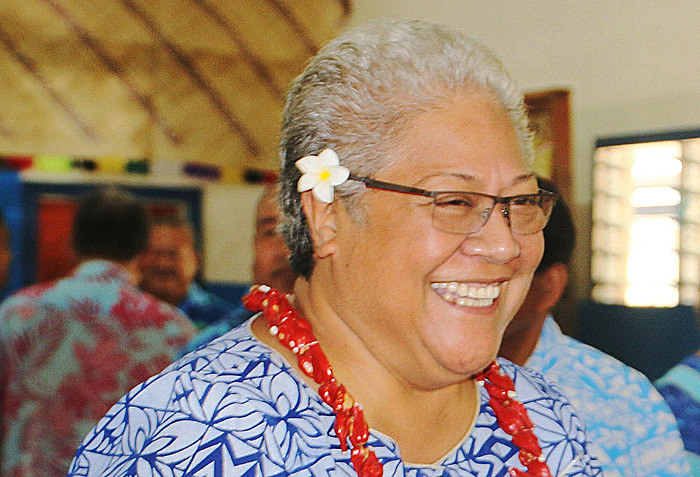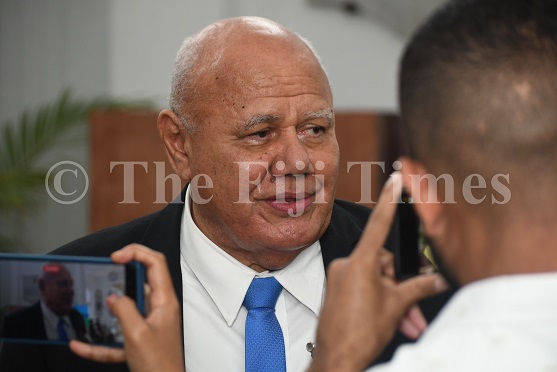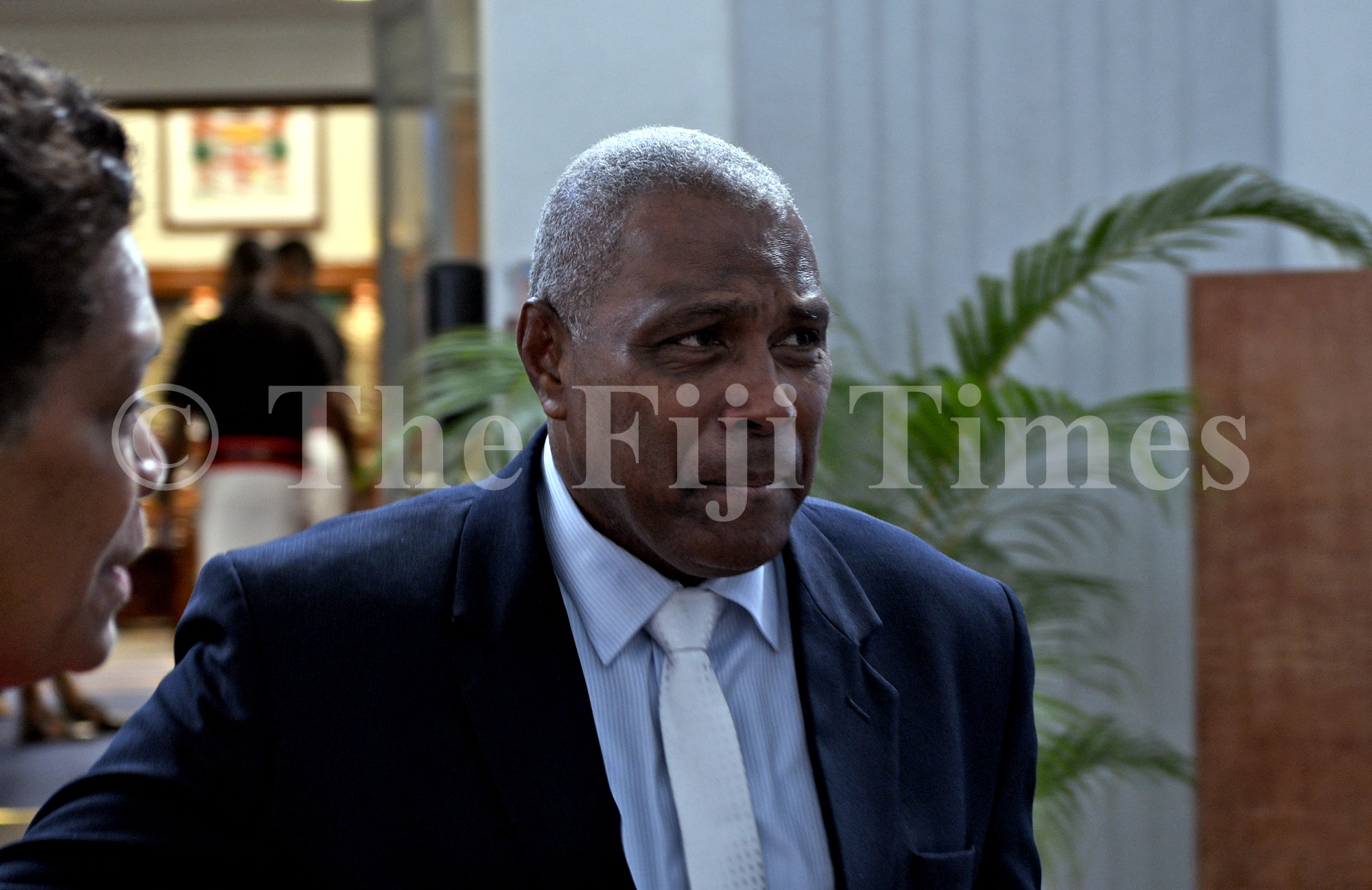Samoa Member of Parliament for Lotofaga, Fiame Naomi Mata’afa, has called for a vote against the leadership of the ruling Human Rights Protection Party (HRPP) in the 2021 General Election to prevent them from reshaping the judiciary, threatening the rule of law in Samoa.
In an interview with the Samoa Observer on Saturday, the former deputy Prime Minister and one of the country’s longest-serving Parliamentarians, said the proposed changes to the Land and Titles Court will be met with backlash. And even if the ruling HRPP pass the three bills before the Election, constituents ought to vote against them in April.
“It may be after the fact but people need to be asking the questions of Government, of its motivations and why they are putting this up and why now,” Fiame said. “I want [constituents] to vote against the Government in the next election because of these bills.
“This should demonstrate to the country that their rights have been put at risk, especially with regards to lands and titles.”
Mata’afa said the proponents of the Bills have been playing a “culture card” to win favour with the community even though they will not elevate Samoan culture as promised.
“The language has been very divisive and this very counter to the spirit of the Constitutional convention,” she said. “That process was about unity and bringing a country together. Why would we in 2020 unpick that and put in lines of division? That baffles me and leads me to question the motivations of these Bills.
“I think people need to recognise these bills for what they are […] they want to pull something out that will draw the country to continue to support HRPP.”
If the Bills are passed after their third reading, Mata’afa said people will be “hit in the face” with their flaws as soon as they have to interact with the reformed Court system. The current bills would have common law and the authority of the Supreme Court removed from the Land and Titles Court, which instead would have its own court of appeal and court of final hearing.
Judges, with no common-law basis, would instead have discretionary powers to make their judgements on the matters brought before them.
“If they have no legal basis there what are they replacing it with? There is nothing to replace it with apart from discretionary powers given to judges. That is not an answer,” Mata’afa said.
“The reality of it is that looking at what they have drawn up it will be difficult for the government to implement. They don’t have the human resources to do it […] it is badly configured and badly conceived.”
Another provision which would allow the new court to reopen old cases would “create a lot of angst,” she went on.
“I think they will have a backlash from people when they hit that system.”
Samoa has not codified its customs and traditions, for a legal purpose or any other. Without such a document the new Land and Titles Court would have no reference from which to decide on customary matters, which concerns Mata’afa.
“It is nearly 60 years old and there are no rules around the land and titles court.
They shouldn’t start a system without doing that first.”
Among the reasons for the Bills touted by the Prime Minister is to legally honour the decisions of a village council, which he says are too easily overturned by the Supreme Court.
But the Ombudsman of Samoa, Maiava Iulai Toma has said that in reality this has happened too few times to justify such an overhaul of the system and that it largely happens in relation to religious freedom: when villages deny a family the right to build a new church.
Mata’afa said in her own experience, the court has usually sided with the village in cases where families or individuals have taken village council decisions to court.
“You really have to debunk some of these messages and unpack them,” she said.
“To say that this is something that happens all the time is just not true. People need to be presented with facts.
We need to put the village governance under a microscope as well, this is not permission to behave badly… we are all worried about that.”
Mata’afa resigned from the HRPP and from her Cabinet post in September after taking a stand alongside her constituents against the three bills, which if passed would create an independent Land and Titles Court separate from the Supreme Court.
At the time Prime Minister Tuilaepa Sailele Malielegaoi said if Mata’afa did not support the bills her party had submitted to Parliament, she should leave HRPP.
Speaking candidly on Saturday, the now Independent Member of Parliament said there needs to be more space for freedom of speech in Samoa.
“It’s realistic to not expect a change in the coming election but what I would hope for is the development of a viable opposition to Government and to start to pull back some semblance of a country that is free to express its will and its thoughts,” she said.
“At the moment it appears like Government wants to control everything.”
If the bills are passed, the Government in the form of the Human Rights Protection Party (which holds a vast majority of seats in Parliament) will have control over the third arm of government, something Mata’afa said is dangerous.
Instead of a rule-of-law abiding society, Samoa could come “pretty close” to a dictatorship, she said.
“Essentially [it is] a centralised and controlled society.
“It’s really turning the clock back and you wonder why you would do that. Everything moves forward, why would we move backwards?”
International human rights and legal authorities have spoken up against the three bills and warned of the consequences should Samoa pass them into law.
Amnesty International, International Bar Association’s Human Rights Institute and the United Nations Human Rights Council have all asked Samoa to withdraw the controversial bills.
Legal bodies the Samoa Law Society, New Zealand Law Society, the Law Council of Australia, the Institute of Small and Micro States as well as Samoan experts in constitutional law have publically expressed concern over the ramifications of the bills.
Mata’afa said she expects these organisations to speak up and possibly do even more than that if Samoa “slides away” from the rule of law.
“I think if we are talking here about the governing standards that all countries should adhere to I think it is very important the international community comes into this discussion,” she said.
“We sit as a member of the international community in various fora, and you can’t have it both ways.”
In the meantime, Mata’afa intends to use her position as an Independent MP to keep the issue “alive” through media interviews, and conversations with constituents and with her colleagues in Parliament, who will ultimately decide for Samoa whether or not these Bills are passed.
“We need to work a strategy where we still raise the profile of the issues, talk to the constituencies to bring the matter to their members of Parliament because that is where it is going to happen,” she said.
Prime Minister Tuilaepa’s office has been approached for comment.






